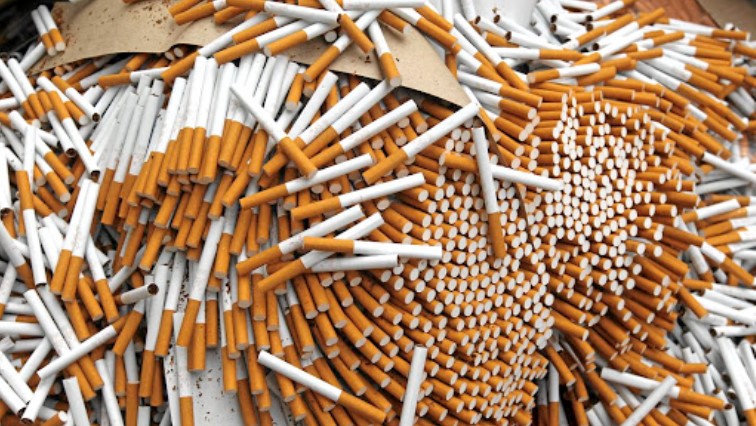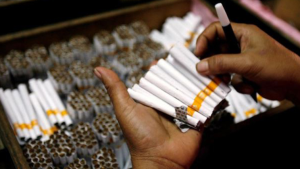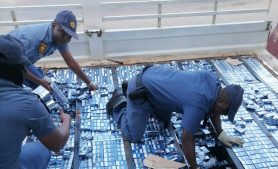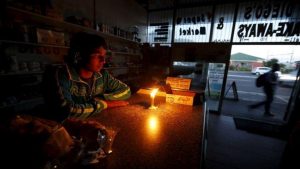The public debate that has been ensuing of whether the last nine years under Jacob Zuma were wasted is immaterial. It is unnecessary to engage in a debate that is based on evidence which is available for all to see.
While Business Leadership South Africa (BLSA) believes that the decade was wasted by the former president, others hold a different view. What is important is to examine the facts.
The erosion of ethics, norms and standards under Zuma’s stewardship cannot be ignored. Therefore, based on facts, the 9 years were wasted. It was during this period where state-owned enterprises like Eskom, PRASA, SARS and Denel were brought to record lowest levels. As of now, Eskom sits on a debt in excess of R400 Billion.
Meanwhile, SARS’ reputation is muddied whereas PRASA has been financially derailed. However, this rot exceeds one’s imagination as revelations at the three simultaneous commissions of inquiry into impropriety and state capture divulge daily.
“Economic growth cannot be achieved when industries like tobacco lose R8 billion per annum”
Global Financial Integrity reports that illicit financial flows (IFFs) or illicit trade has cost South Africa almost R40 billion in the past year. The country is now regarded as one of the world’s biggest markets for illicit cigarette sales and is losing about R8 billion per annum.
For instance, last year, I wrote about the impending disaster looming over our country’s legal tobacco industry as crooks cynically took advantage of a broken SARS to stop paying excise duties and slash the price of cigarettes.
Since then, the Nugent Commission of Inquiry reported that illegal tobacco manufacturers and sellers were operating “with little constraint” and urged the rapid rehabilitation of SARS’ investigative and enforcement capabilities.
It is clear that the new SARS administration has taken on the mammoth task of essentially rebuild SARS from scratch – but this will not happen overnight. To understand the depth of this challenge faced by SARS, one would have to consider the malignant corruption within certain quarters of the South African Police (SAPS). It is because some divisions in SAPS was itself in disarray that SARS became complacent. All this criminality, results in a sabotaged economy. This then leads to lack of economic growth in the country. Economic growth cannot be achieved when industries like tobacco lose billions per annum.
Some statistics to ponder nevertheless. At least 10,000 jobs and 35,000 dependents in the legal tobacco industry, principally on tobacco farms, are at risk due to illicit cigarette trade. Illegal cigarette producers in the country import their tobacco leaf and therefore do not support the local economy.
As a result, British American Tobacco (BAT), is facing ever deteriorating market conditions, even warning that it may need to consolidate its leaf procurement off shore.
This therefore calls for a SARS that is “firing on all cylinders” because a crippling one will not collect due revenues. Meaning, government will not have the much-needed financial resources to service the country. Illicit trade robs the poor of money that can be utilized to improve their lives.
However, the worst is for SARS to fail in tax revenue collection and SAPS to be absent where crimes are being committed. The days where corruption and crime were interrogated in words only are gone. Communities need to know the actual figures that have gone to waste.
Just imagine what government can do with R8 Billion that gets lost due to missed cigarette tax revenues per year.That amount could be used to build almost 52 000 RDP houses. R8 billion can also easily pay for the construction of 16 hightech300 Bed District Hospital with Ophthalmology Unit. Thereafter, they must also see those who have committed the crime and squandered the money facing legal consequences.
The BLSA has been consistent in its call for the rooting out of corruption and eradication of state capture which are the cancers that are eating away at our society. They must be rooted out, crushed and punished where we find them in the public or private sector.
Corruption erodes the values and worth of the Constitution, threatens our Sovereignty, and undermine inclusive growth and our economic development. The BLSA is concerned that the perpetrators, whether public officials or private parties, almost always require business counterparts.
Either way, corruption by both private and public sector threatens the economy.Therefore, among the broader business, are some of the facilitators of these activities. Business complicity in corruption, whether wittingly or unwittingly, betrays public trust and undermines democratic values.
The good thing though is that as BLSA we do not tolerate this. As business, we are determined to play our part in preventing and defeating corruption, to reaffirm honesty, respect for the rule of law, accountability, transparency and putting South Africa first.
BLSA’s track record in dealing with instances of corruption within its ranks is well recorded. It is such decisiveness as displayed by the BLSA in dealing with corruption which will position government at the center of victory and economic emancipation.
Bonang Mohale is CEO of BLSA






